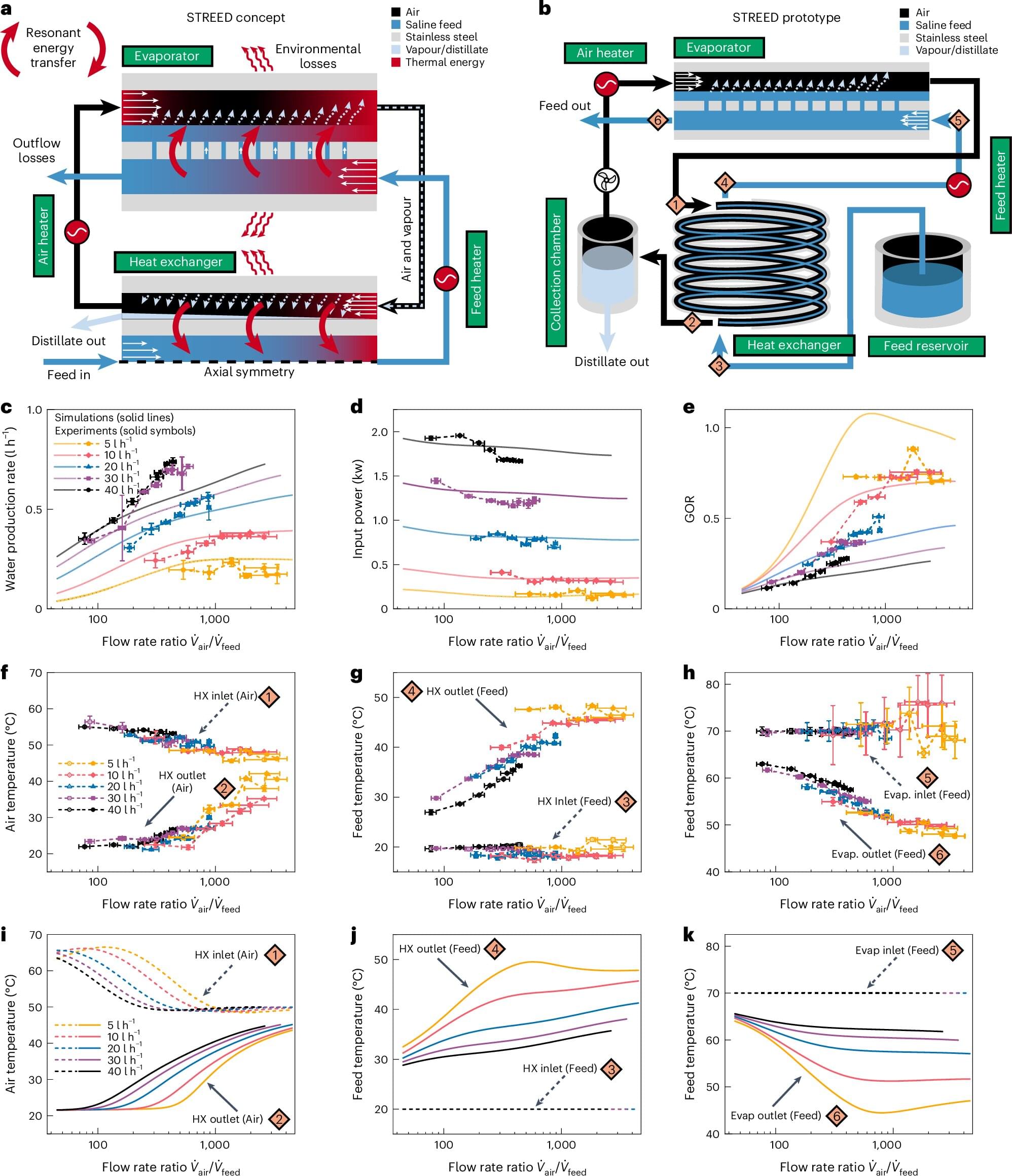Fresh drinking water is a vital yet limited resource that will only grow scarcer over the next few years, according to the World Resources Institute. Desalination, the process of removing salt from water, is an established method used to increase the fresh water supply, especially in coastal regions. However, current desalination systems are dependent on large-scale centralized infrastructure and filtration membranes prone to fouling and degradation.
A team of Rice University engineers has developed a system that could transform desalination practices, making the process more adaptable, resilient and cheaper.
The new system, described in a study published in Nature Water, is designed to be powered by sunlight and uses a creative approach to heat recovery for extended water production—with and without sunshine. In contrast to conventional systems, the setup is made from nondegradable materials and can handle high-salinity brines.
